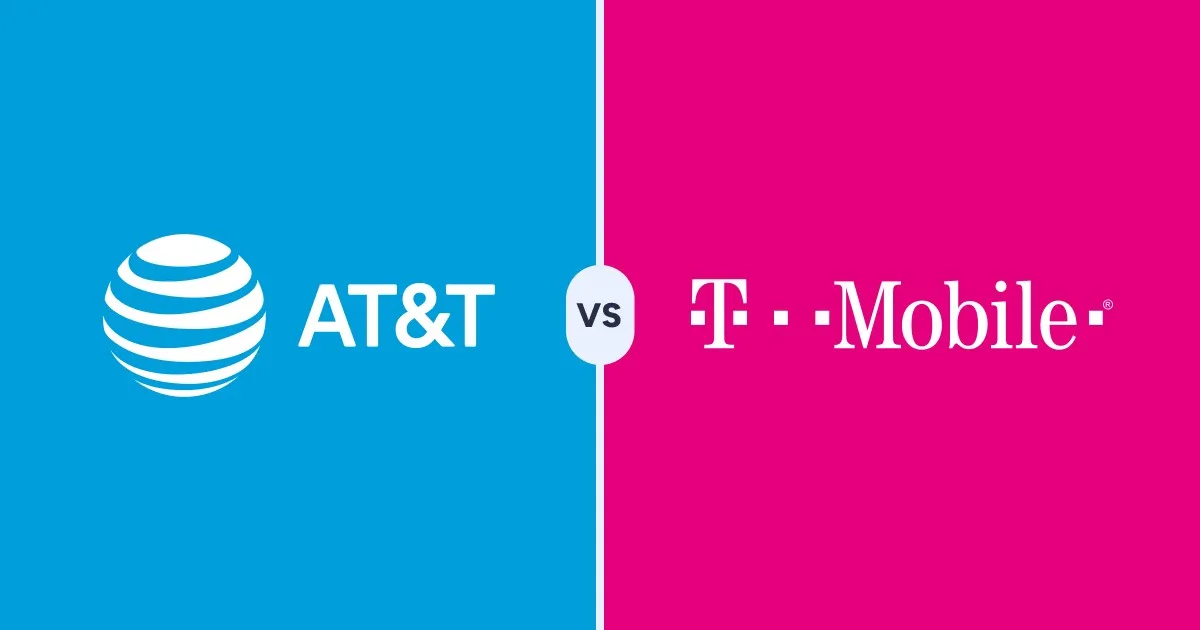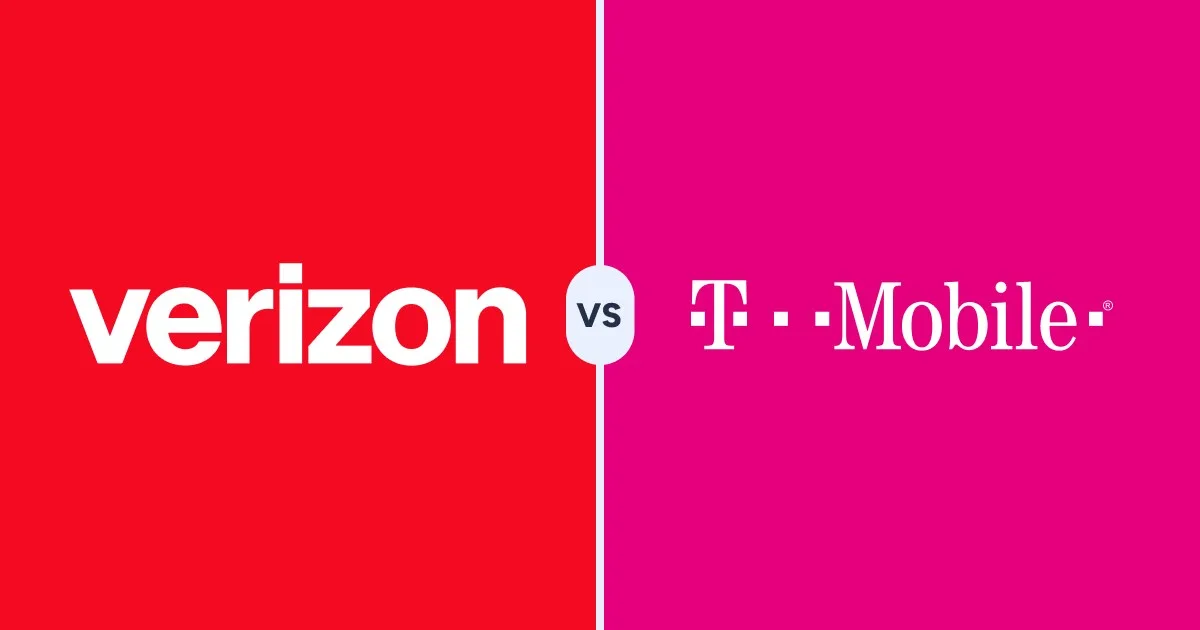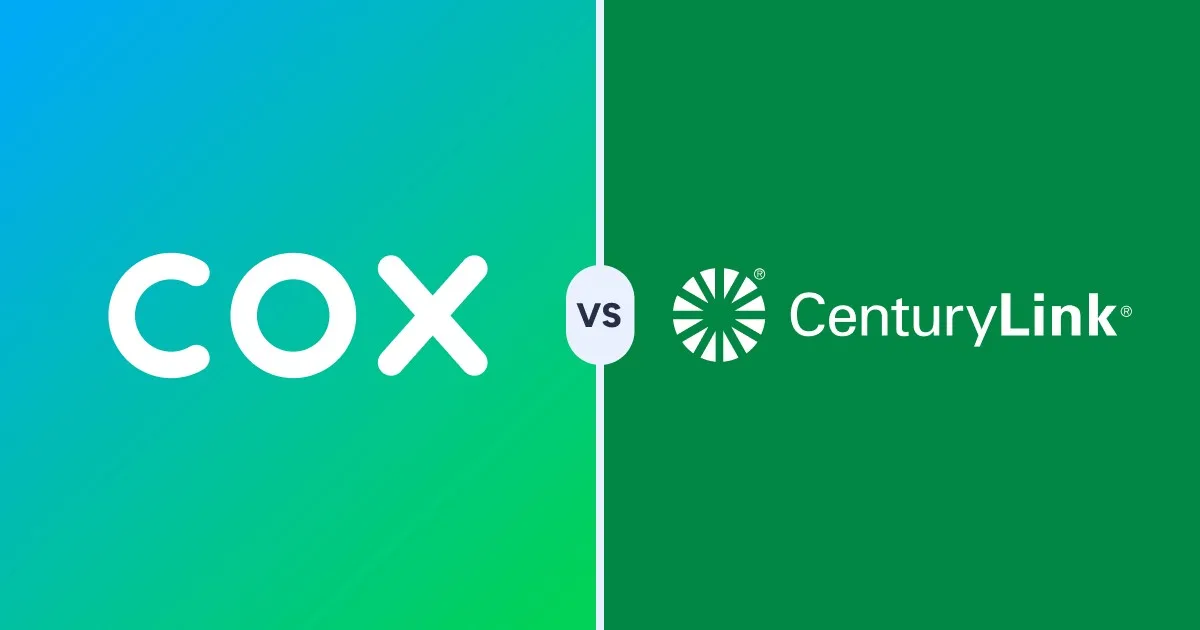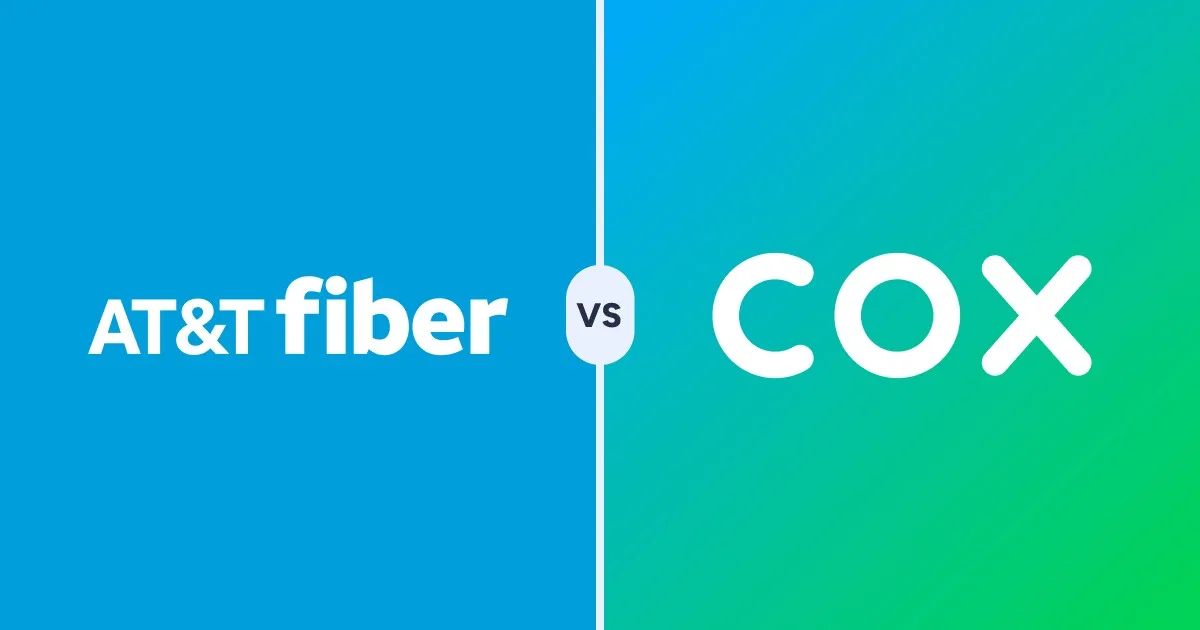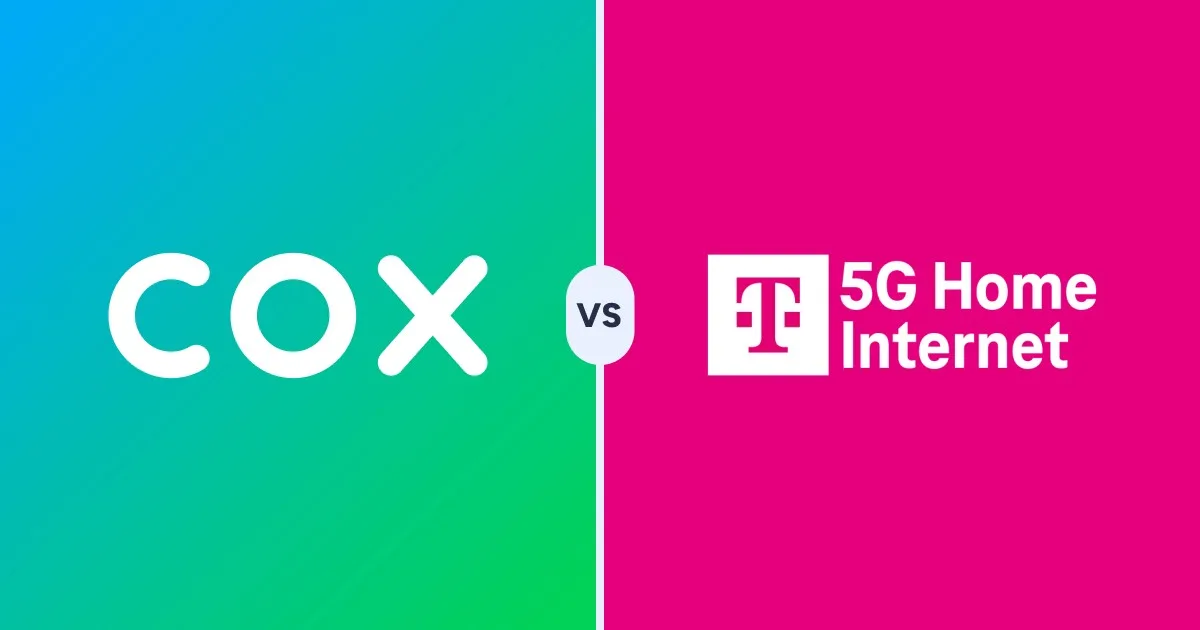AT&T Internet Air vs. Xfinity: Which Internet Provider Is Best for You?
Affordable 5G or reliable cable? Take your pick!
Dec 22, 2025 | Share
Provider Comparisons (Versus)
-
Best for affordability
- Customer rating: 3.9/5
- Price: $60/mo.*
- Speed: Up to 300Mbps
- Internet type: 5G
- Data cap: No cap
- Contract: No contract
-
Best for reliability
- Customer rating: 3.9/5
- Price: $40–$100/mo.†
for 12 mos. - Speed: 300–2,000Mbps
- Internet type: Cable
- Data cap: No cap
- Contract: No contracts
Data effective 12/22/2025.
†For 12 months, no term contract. Restrictions apply. Autopay w/ stored bank account and paperless billing req’d. Taxes and fees extra and subj. to change. Reduced speeds after 30 GB of usage/line. Data thresholds may vary.
* $60/mo after $5 discount when enrolled in Autopay. Paperless billing req’d. Not available in NY. Monthly State Cost Recovery Charge in TX, OH, NV applies. . Service subj. to Internet Terms of Service at att.com/internet-terms. Offers may be modified, or discontinued, at any time without notice. Other conditions may apply to all offers. Speeds based on wired connection. Actual speeds may vary. For more info, go to www.att.com/speed101.
Compare AT&T Internet Air and Xfinity head-to-head
You can’t go wrong with AT&T Internet Air if you’re looking for speedy internet on the cheap. This new, 5G-based home internet service launched as a replacement for DSL, but AT&T is rolling it out nationwide, starting with a handful of major cities. With no charge for equipment or installation, Internet Air shines for the low monthly fee and generous pricing. You can even get $20 off a month when you bundle it with an AT&T mobile plan.
However, you’re better off sticking with Xfinity if you need fast speeds on a steady connection. While Internet Air can only hit speeds up to 225Mbps, Xfinity offers plans that hit up to 2,000Mbps. Coaxial cable networks deliver much more consistent speeds compared to a wireless 5G network, and Xfinity has a larger nationwide network to boot. That said, you have to deal with data caps and contracts with Xfinity, and some of its plans cost more.
Pros and cons: AT&T Internet Air vs. Xfinity
Want to know if AT&T Internet Air or Xfinity are in your area? Take a look by typing in your zip code below.
Plans and pricing: AT&T Internet Air vs. Xfinity
AT&T Internet Air is a single plan offered by AT&T that runs over a 5G network and delivers modest speeds. Xfinity has a lot more to choose from and gets you faster speeds, but prices skew higher, and you have to deal with data caps and annual contracts.
AT&T Internet Air plans and pricing
| Package | Price | Speed | View on AT&T site |
|---|---|---|---|
| AT&T Internet Air | $60/mo.* | 300Mbps | View Plan |
* $60/mo after $5 discount when enrolled in Autopay. Paperless billing req’d. Not available in NY. Monthly State Cost Recovery Charge in TX, OH, NV applies. . Service subj. to Internet Terms of Service at att.com/internet-terms. Offers may be modified, or discontinued, at any time without notice. Other conditions may apply to all offers. Speeds based on wired connection. Actual speeds may vary. For more info, go to www.att.com/speed101.
Affordability is the name of the game with Internet Air. You aren’t getting the fastest speeds on this plan, and your connection is more susceptible to slowdowns and outages because the 5G connection runs on a wireless cellular network. But the plan is cheap, and you don’t have to worry about fine-print complications like annual contracts or data caps.
You get $20 a month off your Internet Air bill when you pair it with a qualifying AT&T mobile plan. If you’re a current AT&T customer, then you’ll definitely win out with Internet Air.
Pro tip:
Want to see how much speed you’re getting on your home internet plan? Take a speed test to find out—and don’t forget to download our speed test app.
Xfinity plans and pricing
| Package | Starting price | Speed |
|---|---|---|
| 300 Mbps | $40/mo.* for 12 mos. | 300Mbps |
| 500 Mbps | $55/mo.* for 12 mos. | 500Mbps |
| 1 Gig | $70/mo.* for 12 mos. | 1,000Mpbs |
| 1.2 Gig | $100/mo.* for 12 mos. | 1,200Mbps |
| 2 Gig | $100/mo.* for 12 mos. | 2,000Mbps |
* For 12 months, no term contract. Restrictions apply. Autopay w/ stored bank account and paperless billing req’d. Taxes and fees extra and subj. to change. Reduced speeds after 30 GB of usage/line. Data thresholds may vary.
Xfinity customers have a lot of options. The 300 Mbps and 500 Mbps plans are great for students, low-income households, and other users on a budget, thanks to their solid speeds and low prices.
You can just as well go the opposite direction with deluxe plans like 1 Gig, 1.2 Gig, and 2 Gig. But the best bet for customers would be in the middle of the pack—the 500 Mbps plan delivers superb speeds at reasonable prices.
Xfinity’s 500 Mbps plan costs basically the same price as Internet Air but gives users a massive edge with much faster speeds: You’re getting 500Mbps max instead of 225Mbps. However, you’ll pay more if you rent a router. You’re also going to be on the hook for an annual contract and data overage charges if you exceed the data cap, so keep those factors in mind as you shop.
Pro tip:
Use our “How Much Internet Speed Do I Need?” tool to see which internet plan is best for you. You can save money by downgrading to a slower speed, but you still need speeds fast enough to meet all your needs.

Deals and promotions: AT&T Internet Air vs. Xfinity
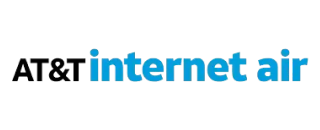
-
Get a reward card worth up to $200 when you sign up for 2-GIG or 5-GIG plan from AT&T Fiber by June 1, 2026
-
Save 20% every month when you bundle unlimited wireless with home internet from AT&T
- Enjoy a 5-year price guarantee on a 300Mbps internet plan for $40 per month through January 15
- Earn up to $500 per year by referring friends to Xfinity
- Get 1 Gig speeds for $50 per month and a 5-year price guarantee through January 15
Want to know if AT&T or Xfinity are in your area? Take a look by typing in your zip code below.
Extra fees: AT&T Internet Air vs. Xfinity
| Equipment Fee | Installation Fee | Data overage fee | Early termination fee | |
|---|---|---|---|---|
| AT&T Internet Air | N/A | N/A | N/A | N/A |
| Xfinity | N/A | $100 for professional installation Free self-install | N/A | N/A |
You’re going to love Internet Air if you don’t love extra fees. Xfinity has every extra fee you could think of, while AT&T has none. That’s right—no equipment fees, no installation fee, and no payments if you exceed your data cap or cancel your service early. This is Internet Air’s big selling point when compared to a cable provider like Xfinity.
Customer ratings: AT&T Internet Air vs. Xfinity
| Overall Rating | Reliability Rating | Customer Service Rating | Speed Rating | Price Rating | |
|---|---|---|---|---|---|
| AT&T | 3.9/5 | 3.8/5 | 3.8/5 | 3.9/5 | 3.7/5 |
| Xfinity | 3.9/5 | 3.9/5 | 3.7/5 | 4.0/5 | 3.4/5 |
Xfinity and AT&T both get excellent reviews in our customer satisfaction survey. They hold the same top-two ranking for overall satisfaction and show differing scores in other areas. In terms of speed and reliability, Xfinity has AT&T beat, but only by a slight margin. AT&T performs better for customer service and especially price—in which it ranks an entire three decimal points higher.
All in all, these providers seem evenly matched in customer rankings. Xfinity has the edge on AT&T, but they both excel in different categories.
Interestingly, AT&T ranks higher than Xfinity in J.D. Power’s 2023 customer satisfaction survey, and it also came on top in the American Customer Satisfaction Index (ACSI) Telecommunications Study for 2022–2023. But those ratings are primarily thanks to AT&T’s fiber service, and Xfinity comes in close behind.
Best mobile and internet bundles
| Bundle deal | How to get it | View on provider’s site |
|---|---|---|
| $20.00/mo. off AT&T Internet Air | Order a qualifying AT&T mobile plan | View Plans |
| Free Xfinity Mobile Unlimited Intro for 2 yrs. | Order Xfinity Mobile along with an Xfinity Internet plan of 600Mbps or faster | View Plans |
Interestingly, although AT&T is primarily a phone company, it’s Xfinity that offers the best deal on mobile and internet combined. Through Xfinity Mobile—an MVNO brand that gives you cell service over Verizon’s network—you can get a free Unlimited Intro mobile plan for two years. You just need to sign up for an Xfinity Internet plan with speeds of 600Mbps or faster, and you’re golden.
AT&T is no slouch in the discount aisle, though. You can get $20 a month off Internet Air when you combine it with a qualifying AT&T mobile phone plan. AT&T has several plan options that work with the discount, so this is the way to go if you need a phone plan with more data and better-quality network coverage. You don’t save as much, but you still get some savings while also having more cellular flexibility.
Internet types: AT&T Internet Air vs. Xfinity
| Internet type | Details | |
|---|---|---|
| AT&T Internet Air | 5G home internet | View Plans |
| Xfinity | Cable | View Plans |
There are some major differences between the internet types you get from AT&T Internet Air and Xfinity.
Xfinity is a cable internet provider. Cable internet is the same stuff that companies use to provide cable TV—it’s been around a long time and is capable of maintaining a high level of reliability and consistency. Although cable isn’t as fast as fiber-optic networks, it can hit gigabit speeds in many areas, and advances in DOCSIS technology have made it far less susceptible to issues like network congestion.
Internet Air is a 5G-based fixed wireless service, meaning it uses a wireless connection from a cellular tower to get you internet. 5G is faster and more reliable than older cellular networks, but it’s not developed to the point that it can beat out cable or fiber. Because a 5G connection works over a signal that essentially beams through the air, you generally get slower speeds and also have a higher chance of experiencing an unstable connection or even the occasional outage.
Data caps and contracts: AT&T Internet Air vs. Xfinity
| Data Cap | Contract | View on provider’s site | |
|---|---|---|---|
| AT&T Internet Air | None | None | View Plans |
| Xfinity | None | None | View Plans |
AT&T Internet Air has no data caps and no contracts. On the other hand, Xfinity does have data caps. This is honestly one of the biggest, most important differences between the two providers.
Data caps and contracts are common nuisances of internet service—they put you on the hook for extra fees if you use too much data per month or decide to cancel your contract early. The fact that Xfinity and AT&T Air offer plans without either is a huge plus.
AT&T Internet Air deserves a lot of credit for doing away with both data caps and contracts—instantly giving you more flexibility and saving you money. This counts for a lot, especially if you’re on a budget and don’t want to worry about excess fees and hidden charges.
Pro tip:
Take a look at our guide to the best no-contract internet to find Wi-Fi with no strings attached.
Installation: AT&T Internet Air vs. Xfinity
| Installation options | View on provider's site | |
|---|---|---|
| AT&T Internet Air |
| View Plans |
| Xfinity |
| View Plans |
Installation is straightforward with AT&T Internet Air. After you sign up for the service, you get a self-install kit in the mail, and you use an app to set it all up. Installation takes about 15 to 20 minutes, and you can do it all yourself. Best of all, you don’t have to pay an installation fee!
With Xfinity, you can also get a self-installation kit, but only if you live in a house that’s already been set up for cable internet. If not, then you need to set up an appointment with a professional technician who can come to your house and get the necessary cabling up and running. You have to pay for installation in this case, but a lot of homes have cable set up already. Let’s hope you’re in the clear and can rely on the simple self-install kit instead.
Availability: AT&T Internet Air vs. Xfinity
You can only find AT&T’s Internet Air in 16 major cities, but Comcast’s Xfinity service is available across much of the United States. Run a search with your zip code to see if you can get either of these providers in your area.
To see if AT&T Internet Air or Xfinity is in your area, enter your zip code below:
Final call: AT&T Internet Air vs. Xfinity
AT&T Internet Air is an awesome pick if you’re aiming for a simple, cheap internet plan to give you basic speeds. If you live on a tight budget and don’t have big internet needs, you’re going to love Internet Air’s simple setup and affordable pricing.
Xfinity is the better choice when it comes to reliability and speed. To put it simply, Xfinity is just faster than Internet Air—a lot faster. A coaxial cable connection isn’t as susceptible to slowdowns or outages, and you have more speed tiers to choose from with Xfinity. That said, we’re not a fan of Xfinity’s data caps and extra fees, both of which make an Xfinity plan significantly less flexible and more expensive compared to Internet Air.
Methodology
Our HighSpeedInternet.com editorial team bases our analyses on customer input from our annual customer satisfaction survey, results from our speed test tool, and proprietary internet provider data on speeds and pricing. To strengthen our research, we look closely at provider contracts to get hard-to-find information on price hikes, data caps, and extra fees, and we keep tabs on the latest news reports and online reviews. When applicable, we also rely on our personal experiences testing these services.
More about AT&T Internet Air and Xfinity
Author - Peter Holslin
Peter Holslin has more than a decade of experience working as a writer and freelance journalist. He graduated with a BA in liberal arts and journalism from New York City’s The New School University in 2008 and went on to contribute to publications like Rolling Stone, VICE, BuzzFeed, and countless others. At HighSpeedInternet.com, he focuses on covering 5G, nerding out about frequency bands and virtual RAN, and producing reviews on emerging services like 5G home internet. He also writes about internet providers and packages, hotspots, VPNs, and Wi-Fi troubleshooting.


